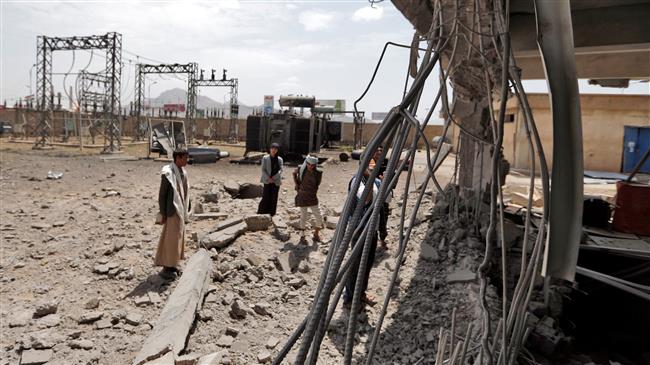
RNA - In yet another scathing report, Amnesty International says Saudi Arabia and its militant proxy forces could be committing war crimes in Yemen by interfering with the flow of humanitarian supplies into the impoverished country.
The UK-based human rights body says the Saudi-led militant proxy forces deliberately stop the aid-laden ships to inspect their cargoes even though it is the United Nations which is mandated to do so. They divert the ships to the Yemeni ports which are controlled by the Saudi-led coalition of invaders whom they work for, or delay them for further inspection sometimes for a month or more.
Saudi Arabia and its regional allies together with the United States, Britain and France have been waging a war on the Arab world’s already most impoverished country to restore the former Saudi-allied officials. Yemen’s Health Ministry says more than 600,000 people have either been killed or injured during the three-year-old invasion. The combination of the war and blockade has brought the country close to the edge of famine. Nor is that all.
The Saudi-led alliance has been waging a full-on battle since June 13 to occupy the port city of Hodeidah as well, which receives the bulk of the country’s food and fuel supplies. Yemen’s Ansarullah movement which has been defending the country against the invaders together with its allies has, however, refused to give up the port. Sadly, that hasn’t ended the worst man-made humanitarian catastrophe in the world. And this is not just about Hodeidah. It’s about the impact of the Saudi-led war on the entire Yemeni civilian population.
The situation is so desperate that British charity Oxfam has also sounded a stern warning. Oxfam is forecasting and has been saying that it will be huge catastrophe if full fighting erupts in Hodeidah city and the port becomes non-functional.
In the prevailing environment, the International Criminal Court should step in to counter Saudi crimes, because the prosecutor of the court has enormous discretion in going after war crimes. Saudis may evade justice but in the ICC eyes they are guilty of egregious war crimes, of plunder and, finally, of murder, including the murder of thousands of young Yemenis - whose future they stole in collaboration with American-British-French allies.
Speaking of the West, the US, British and French governments cannot claim to be a champion of human rights while arming the world’s worst offenders. The problem is that they also want the sweet multibillion-dollar arms deals, so they cut corners on human rights. They broker and approve deals for their arms companies and they know their weapons have been used in Yemen - where they are directly involved in the regime-change campaign.
According to Fars News Agancy, the West’s arms trade in the Middle East goes beyond the Saudi deal. Since the beginning of the war on Yemen, which is now in its fourth year, the US, Britain and France have also made millions selling arms to Bahrain, which has crushed political dissent at home while aiding Saudi efforts abroad, and have exported an assortment of weapons and military equipment to the United Arab Emirates, which human rights organizations have criticized for numerous abuses within its own borders and in Yemen.
What is different about Yemen is that the Saudis’ biggest supporters and the main states preventing the United Nations from taking decisive action are also the US, Britain and France, which are members of the Security Council with veto powers. They have strong economic and security relations with Riyadh. They see Saudi Arabia as a lucrative market for their goods, and also are dependent on Saudi oil. The Persian Gulf country is also a major customer of arms from the US and UK.
As is, the Saudi-led coalition has been bombing schools, markets, hospitals and other civilian targets. Its Western allies have also been accused of major violations, which the UN should also probe. Without full political backing, a commission of inquiry will likely be fruitless. Many members from the UN commission of inquiry in Yemen have been forced to resign, stating that lack of political support from the Security Council made the task impossible.
Realizing these challenges, and the fact that the dynamics at the UN have posed dramatic consequences into the Yemen conflict, the UN should consider how first to push Saudi Arabia and its Western allies to demonstrate a political desire in ending the Yemen war. To end the war and stabilize the country requires a well-thought out approach that balances the need for security with justice for those affected, and calling on the occupying forces to withdraw. This is no small task, but the first step is convincing Saudi Arabia and its partners this is in their best interests.
847/940